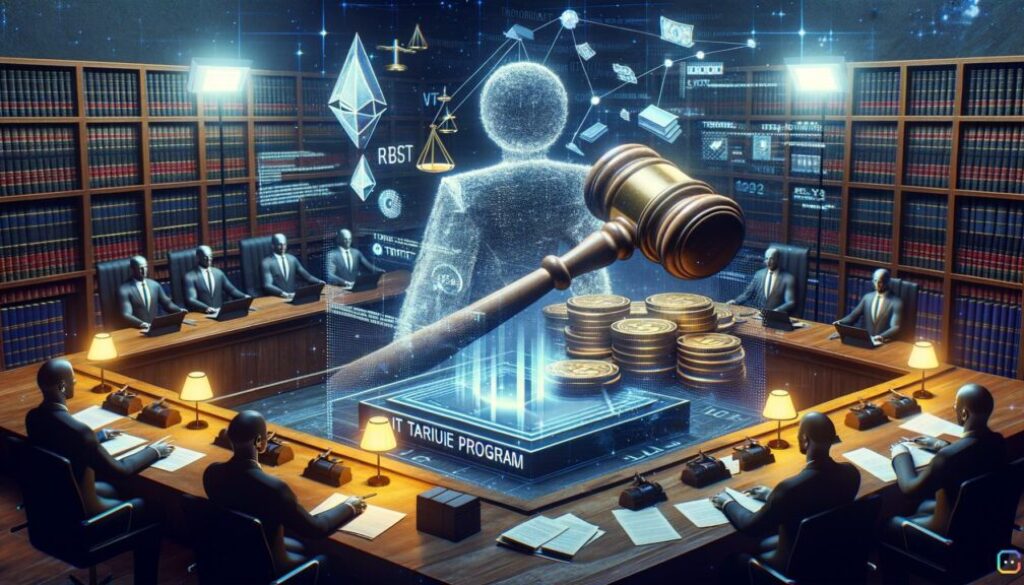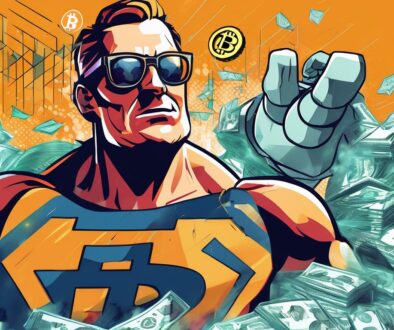The Legal Battle Over Trump’s Tariff Program: What You Need to Know

The Tariff Controversy Heats Up
Recent suggestions by former President Donald Trump that families might need to scale back gift-giving due to tariffs have brought renewed attention to his controversial trade policies. But beyond consumer impact, a significant legal battle is unfolding. Small businesses and even states are challenging the very foundation of Trump’s tariff program, questioning whether the President overstepped his authority.
This legal fight isn’t just about trade policy; it touches upon fundamental principles of presidential power, the separation of powers, and the economic health of businesses across the country. Let’s dive into the legal arguments and the real-world impacts of this ongoing dispute.
Understanding the Legal Basis for Trump’s Tariffs
How could a president unilaterally impose widespread tariffs? The authority doesn’t come directly from the Constitution, which grants Congress the power to regulate commerce and impose duties. Instead, Trump relied primarily on powers delegated to the executive branch by Congress through specific laws:
- The International Emergency Economic Powers Act (IEEPA) of 1977: This act allows the President to regulate international commerce after declaring a national emergency related to an unusual and extraordinary threat originating outside the U.S. Trump invoked IEEPA to justify tariffs against countries like China, Mexico, and Canada, citing various national security and economic threats.
- The Reciprocal Trade Agreements Act of 1934: While older, this act established the principle of reciprocity in trade and gave the President power to negotiate bilateral tariff agreements. Though less central to the recent unilateral actions, it forms part of the historical backdrop of executive power in trade.
The core of the legal challenge revolves around whether the situations cited by Trump genuinely constituted emergencies under IEEPA and whether using this act to impose broad tariffs was a valid interpretation of the law.
Challenging Presidential Power: The Lawsuits Pile Up
The implementation of these tariffs quickly sparked legal opposition. Critics argue that the President exceeded the authority granted by Congress and infringed upon the legislative branch’s constitutional role in setting trade policy. Several lawsuits have been filed, arguing that the tariffs are unlawful and unconstitutional.
Key arguments against the tariffs include:
- Exceeding Statutory Authority: Plaintiffs argue that the conditions for invoking IEEPA were not met or that the scope of the tariffs imposed went beyond what the act permits.
- Violation of Separation of Powers: By imposing tariffs unilaterally without explicit, situation-specific congressional approval, critics claim the executive branch usurped Congress’s power over commerce.
Notable challengers include:
- Small Businesses: Companies like Mischief Toy Store in St. Paul, Minnesota, have joined lawsuits. They represent numerous small businesses directly harmed by the increased costs and supply chain disruptions caused by the tariffs.
- States: California, under Governor Newsom, filed a significant lawsuit arguing that Trump lacked the authority to impose these tariffs unilaterally via IEEPA.
These lawsuits seek not only to halt the tariffs but, in some cases, to obtain refunds for duties already paid.
The Real-World Cost: Economic Impact on Small Businesses
Beyond the constitutional debates, the tariffs have had tangible economic consequences, particularly for small businesses that rely on imported goods.
- Increased Costs: Tariffs act as a tax on imported goods. Small businesses face higher inventory costs, which they must either absorb (reducing profit margins) or pass on to consumers (potentially losing sales). Mischief Toy Store, for example, estimated that 85% of its inventory was affected.
- Supply Chain Disruptions: Tariffs can force businesses to find new, potentially more expensive or less reliable suppliers, leading to delays and uncertainty.
- Financial Strain and Uncertainty: The unpredictable nature of tariff policies makes financial planning difficult for small business owners, hindering investment and growth. For some, like Mischief Toy Store, the added costs raise concerns about long-term survival.
What’s Next? Courts, Constitutionality, and Crypto?
The legal battles over the tariffs raise fundamental questions about the scope of presidential power in the modern era. While the executive branch often receives deference in matters of foreign policy and national security, the courts must weigh this against the clear constitutional authority granted to Congress over trade.
Historically, Trump’s administration faced numerous legal challenges with mixed success in the courts. While predicting court outcomes is difficult, some legal analysts believe the arguments challenging the tariffs hold significant weight, potentially leaning in favor of the states and businesses suing.
Interestingly, the description provided for this topic suggests a potential ripple effect into the crypto market. If traditional international trade mechanisms face significant disruption or legal uncertainty due to disputes like the tariff battle, it could strengthen the case for alternative systems. A protracted trade war or questions about the stability of government-controlled trade finance might inadvertently highlight the potential benefits of decentralized cryptocurrencies as a more resilient medium for international transactions, free from direct governmental tariff imposition.
Conclusion: An Unfolding Legal and Economic Drama
The legal fight over Trump’s tariffs is more than just a political disagreement. It’s a complex constitutional challenge with significant economic repercussions, especially for small businesses caught in the crossfire. As lawsuits progress through the courts, the outcome could reshape the balance of power between Congress and the President on trade policy for years to come. Furthermore, the instability generated by such trade disputes might subtly influence the adoption and perceived value of alternative financial systems like cryptocurrency in the international arena.


